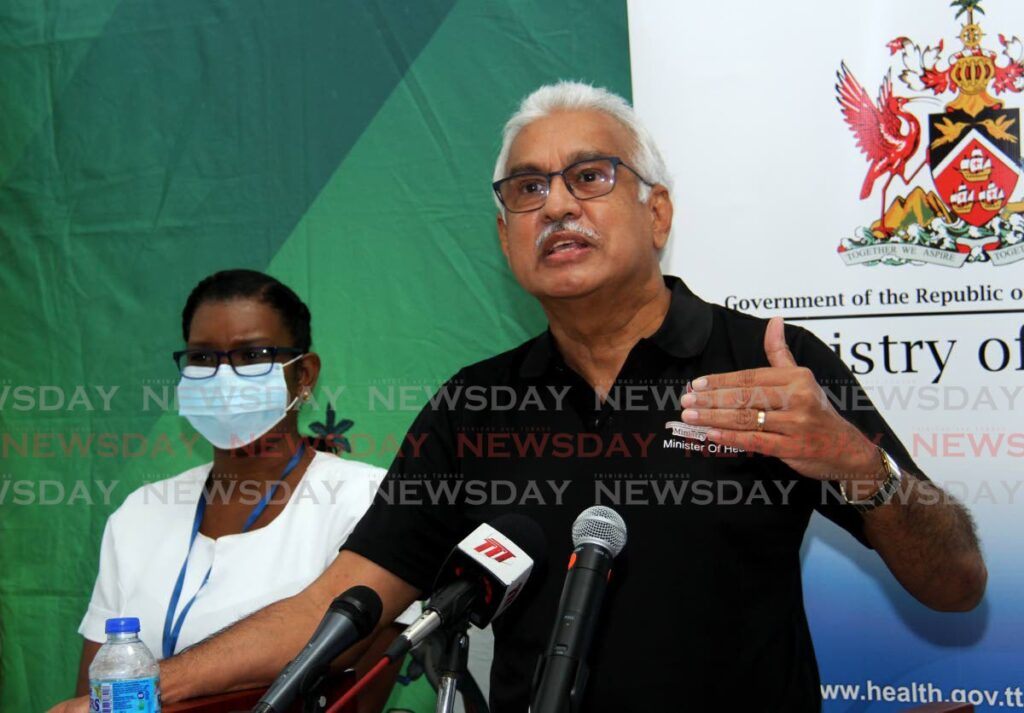Deyalsingh: New variant makes managing covid19 more complex

While Trinidad and Tobago will continue to monitor international developments in relation to the spread of the omicron variant of covid19, Health Minister Terrence Deyalsingh on Saturday said it has raised new issues on how the government can manage movement and monitoring of people.
On Friday night, the Ministry of Health reported that travel restrictions had been imposed on eight countries to try and limit the spread of the covid19 variant of concern omicron (B.1.1.529).
The release said the eight countries are Botswana, Eswatini (formerly Swaziland), Lesotho, Malawi, Mozambique, Namibia, South Africa and Zimbabwe.
Non-nationals who are not citizens or permanent residents of TT and visited any of these countries within a 14- day period will not be allowed to enter the country.
Citizens and permanent residents who visited any of the countries within a 14-day period of their arrival will require mandatory state-supervised quarantine of no less than 14 days.
During the ministry's virtual covid19 media briefing on Saturday, Deyalsingh said local authorities will continue to monitor the variant's spread and adjust the travel advisories accordingly.
He said the variant added to the complexity in managing the spread of the virus.
"You are managing this new variant and you are managing that in the context of trying to live with the virus to allow people the freedom of movement, and so we continue to monitor what is happening internationally with omicron, and if and when we have to make adjustments to the travel advisories, we will do so, in the interest of protecting TT from that entry into the country as long as humanly possible."
Deyalsingh also called on the public to do their part and get vaccinated to better protect themselves.
The mandatory quarantine for people returning from any of the banned countries applies to vaccinated and non-vaccinated nationals who must "bear all associated costs," and were advised to make arrangements before travelling.
All other existing entry requirements must be adhered to, including a negative nasopharyngeal (nasal swab) RT-PCR test result taken no earlier than 72 hours before arrival in TT.
The ministry also said it "strongly advised against all non-essential travel" to the affected countries.
The ministry said it would update the travel advisory as required.
Last year, on March 1, the government announced restrictions for people who had travelled to China, Iran, Italy, Singapore and South Korea when the first variant of covid19 surfaced.
Later that month, on March 11, the restrictions were amended to include travel from France and Germany.
On March 16, the Prime Minister announced that TT would close its borders for 14 days restricting entry to all except citizens, residents and essential staff. On March 21, then National Security Minister Stuart Young announced a full shutdown of air and seaports from March 22.
Borders remained closed until May 15 2021.
In an address to the nation on Thursday, the Prime Minister noted reports of the new variant, which may be vaccine-resistant.
He still urged people to get vaccinated, warning that the third wave of cases and deaths threatened to overwhelm hospitals and local health care.

Comments
"Deyalsingh: New variant makes managing covid19 more complex"